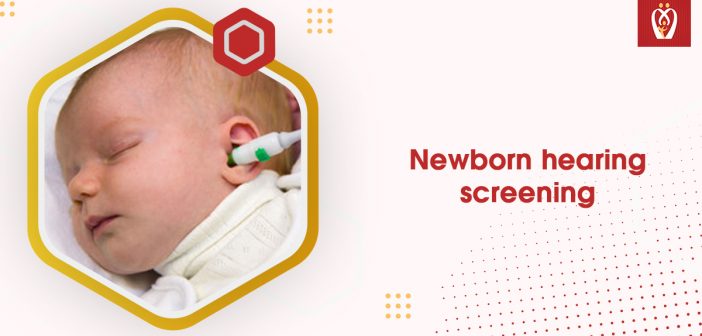Hearing loss affects 1 to 2 out of every 1,000 newborns. It is critical that they receive treatment whenever necessary. Babies with hearing loss can be identified as early as the first few weeks of life thanks to hearing tests. Read more about Newborn hearing screening.
From the time your baby is 12 hours old, you’ll be offered a hearing test for them. Before you leave the maternity ward, you will most likely have a hearing test. Depending on where you live, it may be done at home.
In order for you to know exactly where and when the screening will take place, you should ask your midwife or GP. If you have not had your baby’s hearing tested yet, don’t hesitate to make an appointment with an audiologist or your GP.
What does the screening consist of?
The hearing screening test is administered by a certified hearing screening professional. Newborns are screened using two primary tests:
Sticky pads are used by the tester to attach leads to your baby’s forehead, back of the neck, and behind their shoulder. They are then placed over the baby’s ears in small earphone “cups.” They make soft clicking sounds and use leads to measure how your baby responds to them.
An earpiece with a soft tip is placed in the baby’s outer ear to emit clicking noises, which are known as OAEs (Otoacoustic Emissions). Echoes are typically produced when the cochlea, the innermost part of the ear, receives sound. Detection systems can detect a response.
Performing these simple tests won’t harm your baby in any way. In most cases, the hearing screening test will be performed while your little one is sound asleep or comfortably settled. While the screening test is being performed, you are welcome to remain in the room with your baby.
Results
The results will be provided to you as soon as the examination is completed. When the results are compiled, they will be entered into your baby’s personal health record book, which may be called as the “red book”.
What can we infer from the results?
As long as both ears respond to the hearing screening, it’s unlikely that your baby has any kind of deafness.
For some newborns, a second examination is necessary in order to obtain definitive results. Getting a “refer” means that you’ll have to get your hearing tested again in a few weeks. Your baby may have a hearing issue, but that’s not always the case. It can also be affected by –
- Fluid or other substances that entered the ear canal during birth may affect the initial screen result, as can temporary middle ear fluid.
- Your baby is too restless and the room is noisy.
If your baby fails the second hearing test, you will be referred to a paediatric audiologist for further testing.
If your baby does not pass the follow-up hearing screening in both ears, the audiologist will see them as soon as possible. If only one of your baby’s ears passes the hearing test, the audiologist will see him or her between the ages of 2 and 3 months.
The audiologist will carry out a thorough examination of their hearing. As a result of the tests, you and your child will know if your child has an issue with their hearing and whether or not it is temporary or long-term.
What will happen if I refuse to take the exam?
Opting out of a newborn hearing test is an option for parents. Your child’s Personal Health Record will have this information. Additionally, you’ll be asked to sign a form stating that you turned down the screen.
Even if you decide not to have your baby screened, you should learn about the screening process and the benefits it offers.
It’s a good idea to get your child’s hearing tested if you’re concerned about their speech and language development in the future. Ask your GP for a referral to an appropriate hearing testing service for your child. It’s never too late to have their hearing tested.




